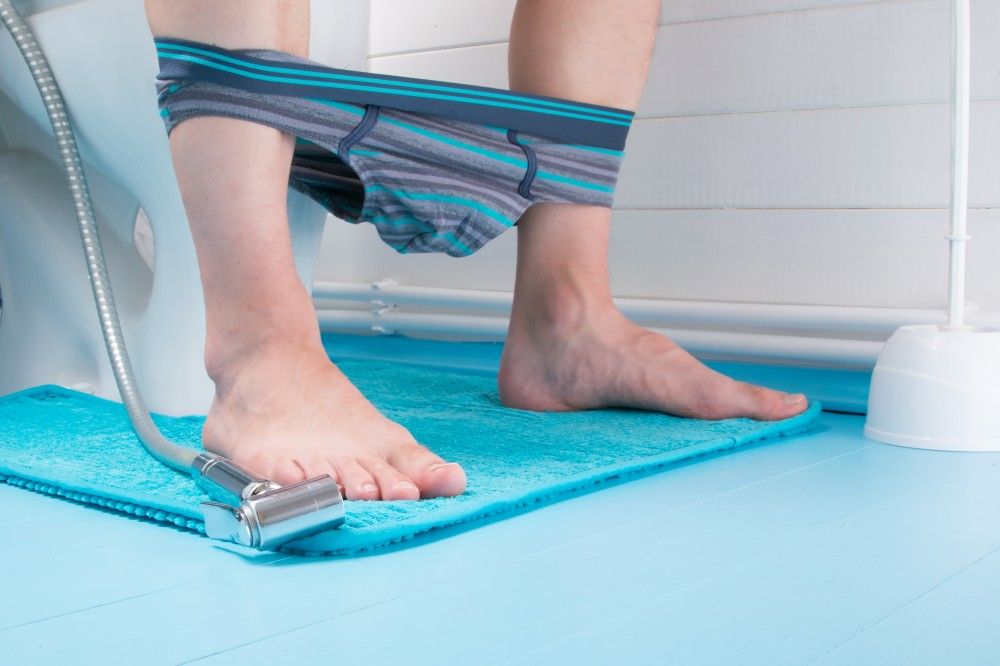
As Toilet Paper Stock Plunges, Bidets Are Making a Splash
This article is a part of , an editorial series reviewing products in music and entertainment. Items are independently selected; Penske Media may earn a commission from purchases made from our links.
As new cases of coronavirus continue to climb, so does the panic apparently, over hoarding household goods and supplies — especially toilet paper. By now, we’ve all seen the photos of empty store shelves and the viral videos of people fighting over the last rolls of bathroom tissue (bath tissue!). But while staking a line at your nearest Trader Joe’s or placing a bulk order on Amazon is one way to replenish your stock, the best way to combat that toilet paper shortage might be skipping the TP altogether and backing up to the old-school appeal of a bidet.
According to Jason Ojalvo, CEO of the attachable bidet company, TUSHY, sales of the brand’s devices have grown “from double to triple to 10 times” what they were just a few short weeks ago, after fears over the coronavirus caused a toilet paper-buying frenzy. “This could be the tipping point that finally gets Americans to adopt the bidet,” Ojalvo says.
Bidets are common fixtures in many European bathrooms and bougie Japanese versions go for hundreds of dollars online, but the washing basin has been slower to be adopted on this side of the oceans. Essentially a large bowl that uses a gentle stream of water to clean out your backside, traditional bidets were separate units that typically sat next to a toilet in the bathroom. These days, a number of companies have introduced clip-in bidets or bidet attachments that are either affixed next to the toilet seat or can be part of the seat itself (the attachments are easily removable too).
The team behind TUSHY says you’ll use “80% less toilet paper” with the addition of a bidet (you still need to pat yourself dry after using, though you can easily swap toilet paper for a hand towel or something similar). And considering Americans use more than 36 billion rolls of toilet paper every year — resulting in the loss of 15 million trees — bidets could go a long way toward not only saving our sanity during this toilet paper shortage, but also saving precious natural resources for generations to come.
Aside from easing our reliance on toilet paper, switching to a bidet may also be better for health and hygiene. According to Dr. Alex You, an L.A.-based emergency physician, bidets are more effective than regular TP because they use pressure and water. “If you have dirt on your hands you would want to use water too] and not just wipe it on a paper towel right?” he asks. “Using toilet paper alone just wipes and smears your poop.”
“Health-wise, using a bidet is also important because many diseases, including things like hepatitis and potentially COVID-19 can be transmitted through fecal oral transmission,” You says. “Also, its just good hygiene.”
According to the team at TUSHY,, wiping with dry paper or wet wipes contributes to “30 million annual cases of hemorrhoids, UTIs, yeast infections, anal fissures and itching.” So, you know: not great.
TUSHY Classic Bidet Attachment, $79 (get 10% off your purchase with code ROLLING)
Frankly, a bidet also just feels damn good around your under-carriage. The stream of water gently caresses your nooks and crannies without being invasive. And it’s a whole lot easier than trying to slide in there with TP alone. In just a few seconds, you’ll have cleaner cheeks and a more refreshed rear end.
If there’s a crack against using a bidet, it’s that the device isn’t super portable. But many companies have introduced travel-sized bidets, that utilize an angled nozzle and squeeze bottle to get the job done. As for the myth that a bidet recycles your toilet water? Consider that fake news.
“‘Isn’t it dirty toilet water you’re spraying your butt with?’ is a myth we often hear,” says Ojalvo. “but] the bidet uses the same water in your bathroom that you use to brush your teeth — the water comes from the faucet, not the toilet.”
When it comes to personal hygiene, there isn’t a one-swipe-fits-all solution, but as toilet paper shortages continue, expect bidet sales to continue to rise.
“The reality is, once you use a bidet to clean after pooping you cannot go back to wiping and toilet paper,” Ojalvo says. “Wiping seems not just inefficient, but also barbaric, by comparison.”




